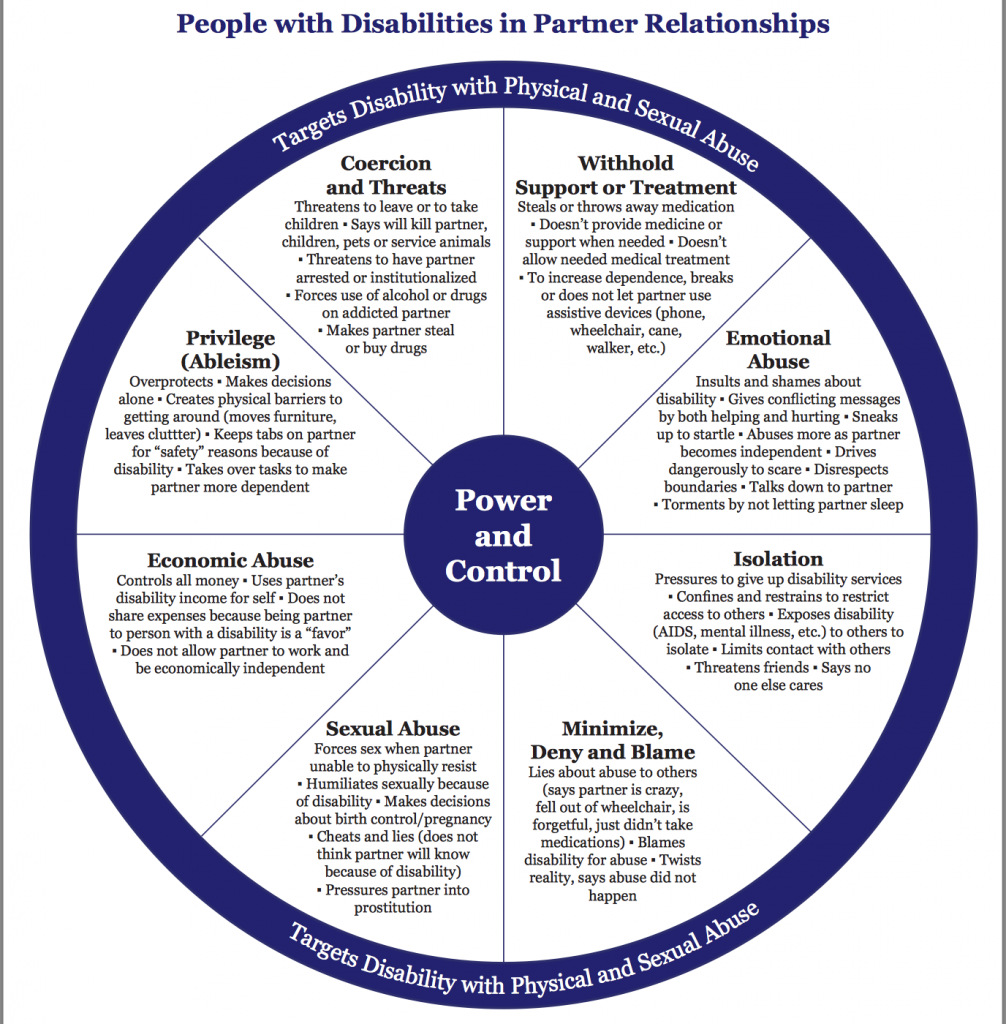HELPFUL RESOURCES FOR SURVIVORS WITH DISABILITIES
- Disability Network – Michigan
- Disability Network – Michigan member CILs are consumer driven, community based, cross disability organizations that promote independence and self determination for people with disabilities.
- Michigan Protection & Advocacy Service
- The mission of Michigan Protection & Advocacy Service, Inc. (MPAS) is to advocate and protect the legal rights of people with disabilities.
- Michigan Statewide Independent Living Council
- The Council promotes integration and full inclusion of people with disabilities into the mainstream of American society.
- NeedyMeds
- NeedyMeds is a 501(c)(3) national non-profit that connects people to programs that will help them afford their medications and other healthcare costs.
- Great Lakes Loan Closets
- This website is designed to help you find organizations that lend medical equipment for minimal or no cost.
QUICK STATISTICS
(Source: EndAbusePWD.org)
- Research on abuse of people with disabilities is limited.
- People with disabilities are three times more likely to experience rape and other forms of sexual assault.
- People with disabilities are three times more likely to experience childhood sexual abuse.
- Risk of violent victimization is even higher for some people with disabilities. This includes women with disabilities, people with cognitive or developmental disabilities, people with psychiatric disabilities, and people with multiple disabilities.
PEOPLE WITH DISABILITIES POWER AND CONTROL WHEEL

UNIQUE BARRIERS WITHIN DISABLED COMMUNITIES
(Source: EndAbusePWD.org)
Several barriers exist to addressing intimate partner violence in disabled communities. These include:
- In general, throughout our society, people with disabilities are viewed as “less than” someone who doesn’t have a disability.
- People with disabilities are seen as unreliable, less credible, and more prone to fantasizing.
- People with disabilities are often segregated and isolated in communities.
- Many people with disabilities, especially people who have an intellectual or cognitive disability, are taught and expected to follow the directions of those “in charge” and comply with someone else’s wants, needs, or demands.
- Perpetrators may perceive people with disabilities as easy targets because of societal stereotypes and extremely low rates of prosecution of perpetrators of crimes against people with disabilities.
- People with disabilities who are abused are doubly silenced – who they are and the hurt and harm they experience is not widely known, understood, or taken seriously.

